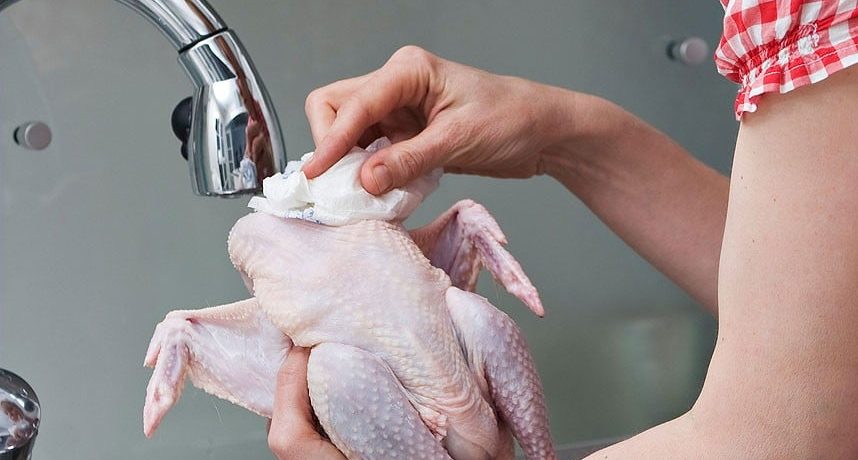A common misconception is that it is hygienic to wash chicken before cooking it and that washing chicken also helps prevent many food-borne diseases. Research shows that both professional and home cooks tend to rinse and wash poultry thoroughly prior to cooking.
Contrary to popular belief, washing chicken and other poultry before cooking may prove highly ineffective in killing bacteria. Several researchers argue that washing chicken may spread contaminated water droplets around, which may, in turn, lead to food poisoning..

Why you should rinse your chicken before cooking?
The key is to understand that no matter whether you rinse or wash your chicken before cooking or not, there are certain precautionary measures that you must take before cooking. Some of these measures are discussed in this article.
Does washing chicken really make sense?
Bacteria and other pathogens are so tightly glued to the chicken, that it is nearly impossible to separate them out by washing. To handle such bacteria, it is important to cook chicken at an appropriate temperature, preferably above 165 degrees Fahrenheit.
At such a high temperature, all of the bacteria get killed automatically, regardless of the chicken being washed or not.
Why does research say that rinsing or washing chicken could be unsafe?
Raw chicken is thought to possess either or both of the two sets of bacteria – Campylobacter and Salmonella. These two bacterial species are known for causing several food-borne illnesses such as fever, abdominal pain, diarrhoea and cramping. In severe cases, it may even cause reactive arthritis, nerve disorder, and irritable bowel syndrome.
While salmonella is one of the most common reasons behind food poisoning, only a few Campylobacter members are enough to cause serious illness. It is estimated that food poisoning caused by these two bacterium lead to the death of hundreds of individuals around the world.
Researchers believe that instead of eliminating these harmful bacteria, washing may stimulate the risk of food poisoning. Dipping one’s own hands in water filled in a big bowl containing raw meat not only contaminates the hand, but also the utensils and the surrounding surfaces.
Research suggests that washing raw poultry may trigger aerosolization, a process that spreads bacteria to the sink, utensils and surrounding surfaces. As a result, people who consume food prepared with the help of the aforementioned items are at a greater risk of food poisoning because of cross contamination.
The researchers believe that a better way to get rid of the harmful bacteria is to wipe raw chicken gently with a paper towel and then throwing the towel away. In addition, there are a number of cooking techniques such as grilling, baking, frying or slow cooking that helps raise the temperature to a minimum of 165 degrees Fahrenheit, which eventually kills all potentially harmful bacteria.
What is the best way to prevent cross-contamination and infection from chicken bacteria?
There are some universal guidelines that must be practised, no matter whether you prefer to rinse the chicken or not. Some of the these guidelines are discussed below:
- Sanitize everything: From kitchen slab and sink to the utensils used to rinse chicken, sanitize everything carefully to prevent cross-contamination. You can use a mixture of bleach diluted in water to carry out the sanitization process.
- Hand cleanliness: Do not forget to clean and sanitize your hands thoroughly after handling raw meat. In fact, you should even consider changing your clothes or apron in case you feel they may have got contaminated as well.
- Cooking utensils: Prefer not to use the same utensils for cooking that you used for washing purposes. In case it is necessary, thoroughly sanitize and wash the utensils with hot water before re-using them again.
- Discard packaging: The poultry packaging material is a source of contamination too. Therefore, discard all disposable packaging and never use them to store other food items.


 proccessing your request...
proccessing your request...
Comments